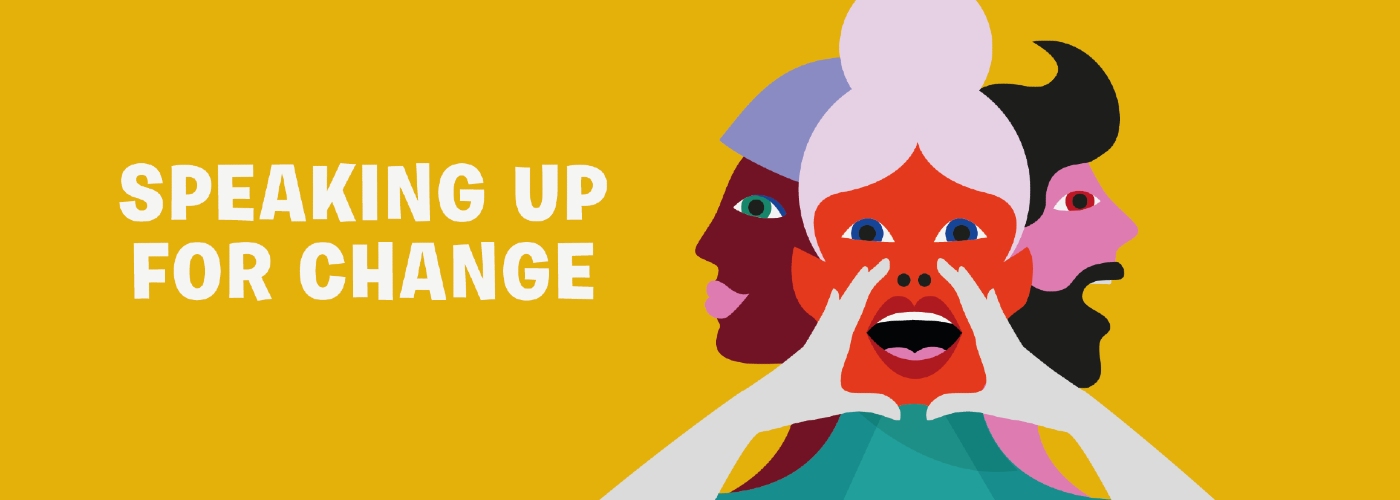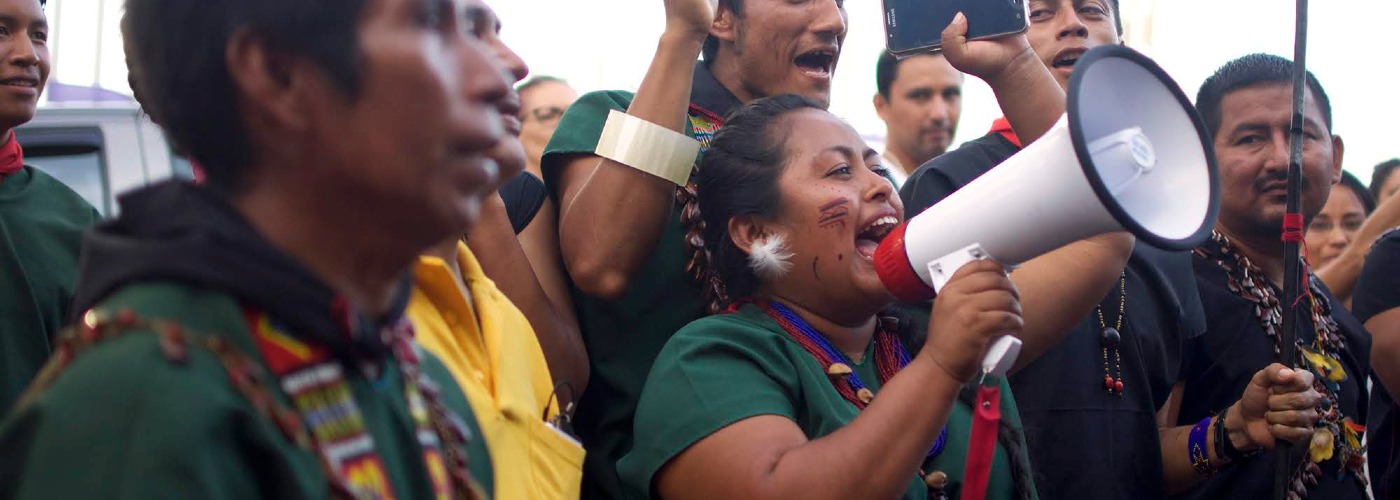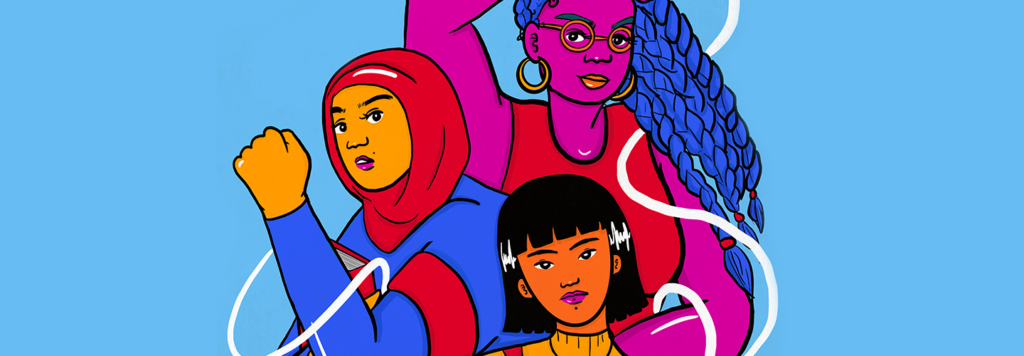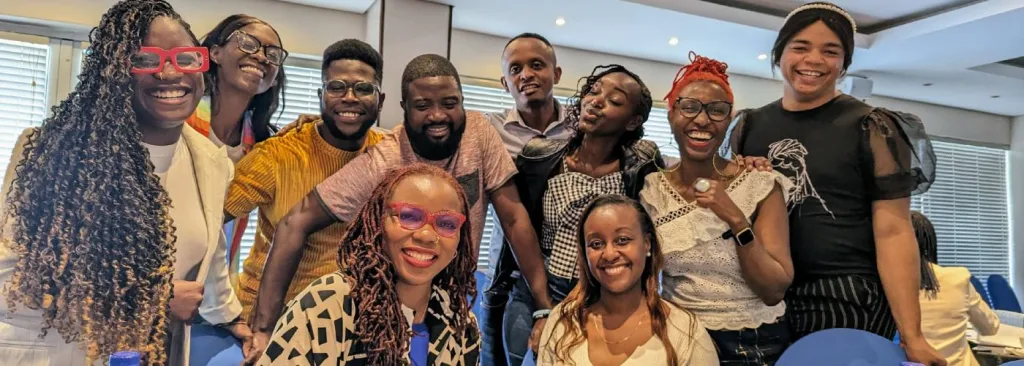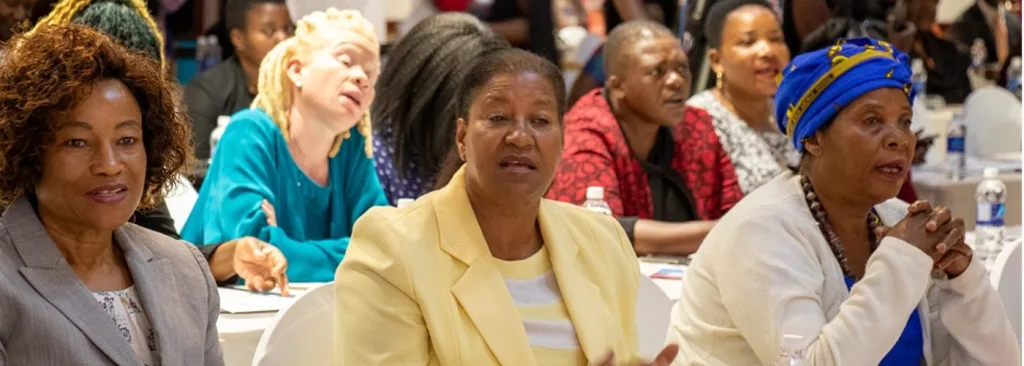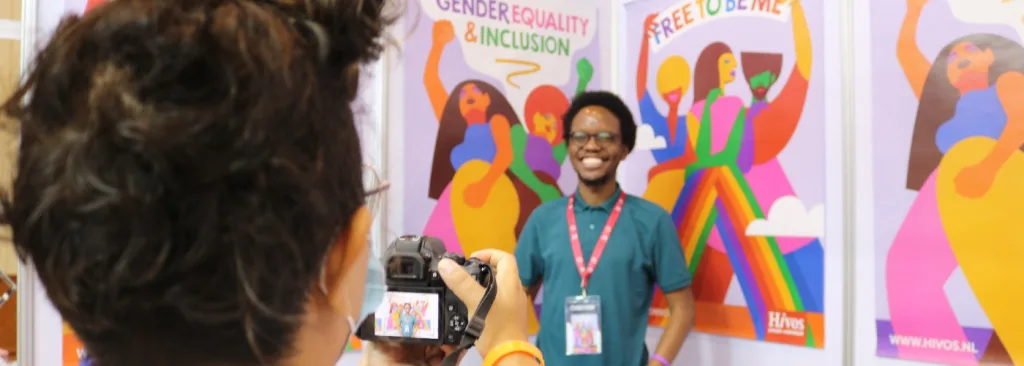The Dutch Ministry of Foreign Affairs (MOFA) recently announced its plan to introduce a Feminist Foreign Policy (FFP). But the Netherlands is already one of the top three donors to gender equality and a trusted partner of women’s organizations and LGBTIQ+ movements globally. Is a Feminist Foreign Policy really necessary?
Our answer is a resounding yes. No matter how admirable the Dutch track record is so far, there is a global women’s rights emergency that demands even greater and more courageous leadership. The UN goal to reach gender equality by 2030 is badly off course. A backlash against sexual and reproductive health and rights (SRHR) is gathering steam alongside growing sexual and gender-based violence and criminalization of LGBTIQ+ rights. Post-Covid, more women than men remain out of work. Worse, this global women’s rights emergency is colliding with a global climate emergency that subjects women and girls to disproportionate loss of life and livelihoods.
“With its new Feminist Foreign Policy, we hope that the Netherlands will step up to claim a leading global role in the very difficult but urgently necessary task of forging a new feminist path to human and planetary security.”
At this moment of crisis, a Feminist Foreign Policy is a historic opportunity for the Netherlands to punch above its weight. While we agree with MOFA that resources and representation are vital elements of FFP, we also fear the policy will founder unless it also addresses the root causes of injustice against women and LGBTIQ+ people. Here are our thoughts about what that means in practice.
Resources
1. Aid for gender equality
Increased aid for gender equality should remain a cornerstone of Dutch foreign policy, particularly as the latest data shows a downward trend in overall aid to gender equality from all donors. With over 30% of Dutch aid having gender equality as its primary objective – the highest proportion of any bilateral donor – the Netherlands is well placed to rally the international community to reverse this worrying trend. However, due to recent cuts to the overall aid budget, the Dutch lag behind on the volume of funding to gender equality. The FFP should reverse these cuts, bringing aid back from 0.52% of GNI in 2021 to the global benchmark of at least 0.7% of GNI. And the Netherlands must also set firm targets to increase the proportion of all Dutch aid and financing that goes directly to feminist and women’s organizations and LGBTIQ+ groups in the Global South – whether for development assistance, climate or humanitarian relief.
2. Climate funding into the right hands
Move faster to get substantially more climate funding into the hands of women, LGBTIQ+ people, Indigenous groups and youth, including locally designed solutions such as those tested and proven in our ENERGIA and RUAF. In 2022, the Netherlands pledged to double grant funding for climate adaptation as part of increasing its annual climate finance to 1.8bn euros by 2025. This makes the country a global frontrunner on adaptation and one of a small handful contributing significantly more than their “fair share” of the $100 billion pledged annually by rich countries in climate assistance. Yet (as acknowledged in a 2021 MOFA evaluation) it is now clear that this $100 billion falls far below the actual needs of climate-vulnerable nations, particularly once we factor in loss and damage. For example, the costs of climate emergencies that are already happening, such as last year’s $40bn flood damages in Pakistan.
The FFP should also include a leading role for the Netherlands in securing international agreement on new targets for climate finance, including dramatic increases for adaptation and loss and damage funding, and ambitious targets for the share of funding that reaches women and local communities.
Root causes
3. Needs of women and marginalized groups front and central
Put the needs of women and marginalized groups front and central in all policies. From aid to security to trade, the aim should be to “reach those left furthest behind first,” as governments promised in Agenda 2030. Ensure gender is understood in all its diversity rather than as a binary concept. Be explicitly inclusive of non-binary, gender non-conforming, trans and intersex people and LBQ women and girls.
4. Bodily autonomy and self-determination
Following on from this, put bodily autonomy and self-determination at the heart of “security” as defined by Dutch foreign policy. Sexual and reproductive health and rights (SRHR) are under concerted attack by conservative groups in many countries. Twenty years after the adoption of UN Security Council Resolution 1325 to prevent sexual violence as a weapon of war, an unprecedented number of women and girls find themselves targeted in armed conflicts, with no say in how to end them. On top of this, increasing climate-related disasters in many communities are leading to growing rates of gender-based violence, child labor and early and forced marriage. Austerity policies and soaring debt service costs are starving public health services.
The result of all these trends is nothing less than a crisis of bodily autonomy, which threatens all other rights. The FFP should sustain and strengthen the Netherland’s strong commitment to funding SRHR programs and services. It should also look further to address other fast-growing threats to the ability of women, girls and LGBTIQ+ people to make their own decisions about their bodies and futures.
5. Bold reforms of policies and institutions
Champion bold reforms of policies and institutions to achieve transformative feminist goals. Push for the entirety of international financial institutions to address the twin debt and climate crises, as advocated by the V20 group of climate-vulnerable nations. Accelerate the defunding of fossil energy and deforestation. Lead the way towards fair and effective global tax rules that enable developing countries to properly finance inclusive public services and social protection for women and other rightsholders. Domestically, reform and align policies in areas such as refugee rights, social welfare, agriculture, and trade and subsidy policy.
6. Serious discussions on reparations
Begin serious discussions with Global South nations and diaspora populations on reparations for colonialism and slavery, as well as the climate debt owed by all industrialized nations to the rest of the world. In December 2022, Dutch Prime Minister Mark Rutte became one of a select few Northern leaders to publicly recognize the huge role that colonial exploitation played in their countries’ present-day wealth. Slavery, he acknowledged, accounted at its peak for up to 10% of Dutch GDP.
Yet while Mr. Rutte announced the creation of a small fund to educate Dutch citizens about slavery, he ruled out reparations to the descendants of the approximately one million people enslaved by Dutch trading companies in the past. What’s more, even though slavery and colonial rule ended long ago, net outflows from South to North continue. The OECD estimates that for every one euro coming to developing countries in aid, three euros leave in illicit financial flows (e.g. tax evasion, trade mis-invoicing, illegal logging and mining) to the benefit of rich global companies and tax havens. Meanwhile, Africa shoulders nearly 50% of the estimated costs of global warming, despite contributing only 3% to the emissions that caused it. A feminist foreign policy worthy of the name must address these systemic inequities, which do not provide a basis for a stable or sustainable future world order.
Representation
7. Creation through feminist processes and meaningful consultation
A feminist policy should be created through feminist processes. This demands meaningful consultation on the policy with those most affected by the global crises of economic exclusion, climate injustice, gender backlash and political repression. Hivos and our partners would be glad to help Dutch embassies convene participatory consultations in countries where we work around the world, ensuring that these dialogues are accessible to the most marginalized groups.
8. Full participation
Support the ability of women and LGBTIQ+ groups to fully participate in and influence public conversation at all levels. While “offline” attacks on protest and free expression are of grave concern, special attention is also needed for fast-evolving, borderless digital technologies. Although they can put more power in the hands of oppressed groups, they can just as easily become weapons for their oppressors. Building on the particular experiences and needs of women, LGBTIQ+ people and other frequently-silenced groups, foreign policy should aim to regulate the digital realm and artificial intelligence as global public goods, so that all people can safely and affordably make full use of their potential to advance their rights. Technology governance should also seek to prevent abuses such as censorship and internet shut-downs, state or corporate surveillance, mass disinformation, and algorithmic bias, which deter women and gender and sexually diverse people from participating in public life.
9. Participatory accountability mechanism
Establish a participatory accountability mechanism to follow up on implementation. It should include voices from civil society in the Netherlands, the Global South (beyond the focus countries), and the ministries involved. Ensure that monitoring of the implementation and impact of the policy takes intersectionality into account, providing disaggregated data on the discriminatory social structures that drive inequality or hinder the implementation of the FFP.
A robust feminist foreign policy
Resources, root causes and representation are the three basic ingredients of a robust feminist foreign policy, but the secret sauce is courage. With its new FFP, we hope that the Netherlands will step up to claim a leading global role in the very difficult but urgently necessary task of forging a new feminist path to human and planetary security. Only through visionary action to overcome the toxic legacies of patriarchy, colonialism, and economic and environmental exploitation can we create a world where people of all genders and nations can live sustainably in dignity and freedom. We stand ready to support the Dutch government in this historic challenge.

